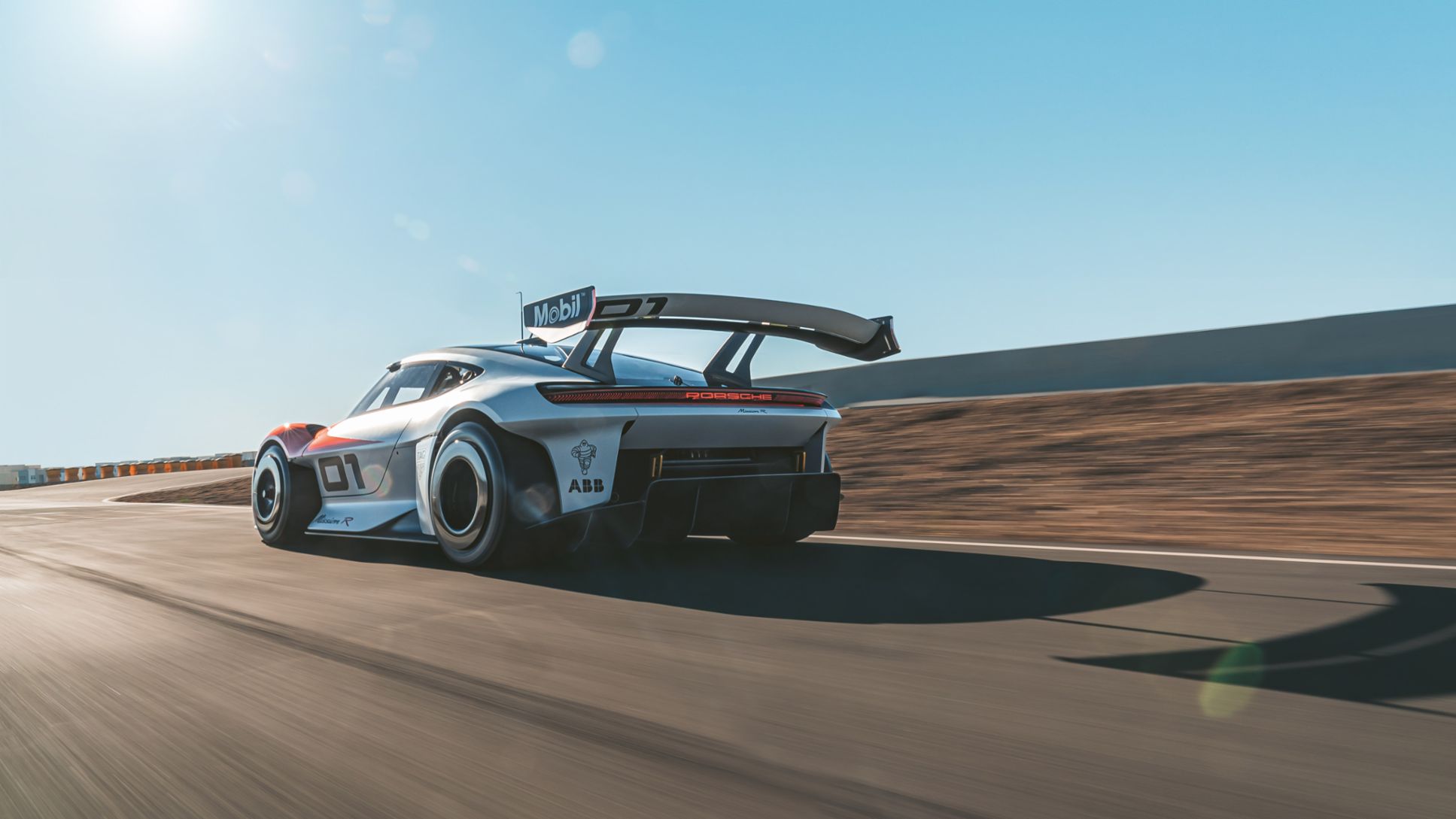„In the beginning, I looked around and could not find quite the car I dreamed of. So I decided to build it myself.” Ferry Porsche
A brand for those who follow their dreams
The world is becoming increasingly digital, more connected and also more volatile. This is inevitably changing markets and what customers need. Working environments are growing ever more complex. Climate change is increasing. Electromobility is becoming more and more established. Porsche sees these challenges as an opportunity: “The view into the future is always tinged with uncertainty. That’s exactly why it’s important for the strategy to guide us and connect the major issues to specific company aims. Our Strategy 2030 provides an excellent basis for this,” says Oliver Blume, Chairman of the Executive Board of Porsche AG. Specifically, it is about making the company’s actions even more sustainable. Giving the customers a comprehensive product experience. And, in the process, doing business profitably and being a good employer. The corporate strategy shows us the way. Porsche certainly intends to make a success of transformation.
Mission 2030
“In the beginning, I looked around and could not find quite the car I dreamed of. So I decided to build it myself.” With this aspiration, trailblazer Ferry Porsche set the tone for the future. It is now more than 70 years since he built the 356 and created the Porsche sports car brand. Since then, his words have lost none of their appeal. Quite the opposite, in fact. Ferry Porsche’s statement perfectly describes the current mission with which the company is shaping the future.
Vision 2030
The company’s vision carries Ferry Porsche’s mindset into the future: “The brand for those who follow their dreams.” This explicitly includes the employees. Chairman of the Executive Board Oliver Blume says: “Porsche epitomises freedom and independence – and the inner drive to achieve goals. To this day, nothing has changed in that regard. We want to help our customers realise their lifelong dreams.”
Goals 2030
Porsche has defined its goals based on the four stakeholder dimensions of customers, society, employees and investors. In keeping with this vision, the company aims to be the most recognised brand in the world and one that particularly excites its customers.
Sustainability is now an even bigger priority. As a company, Porsche wishes to be balance-sheet CO₂-neutral by 2030 – across the entire value chain. The sports car manufacturer voluntarily has its sustainability achievements in the areas of the environment, society and responsible corporate governance rated annually by the sustainability rating agency ISS ESG. Porsche has set itself the goal of being classified as one of the leading companies in the automotive industry in this rating.
Porsche is also rising to the financial challenges of transformation. The company is investing heavily, among other things in sustainability, innovation, digitalisation and training. Despite this necessary financial effort, Porsche is sticking to its strategic target of a return on sales of at least 15 per cent and a return on investment of at least 21 per cent.
Six cross-cutting strategies
The customer, products, sustainability, digitalisation, organisation and transformation – these are the six cross-cutting elements that make up Porsche’s Strategy 2030. They form the centre of the Porsche strategy house and feed into the corporate goals. The profitability programme provides the foundations. Porsche uses this to increase efficiencies and to tap into additional sources of income. The second foundation stone is the Volkswagen Group’s Together4Integrity programme, which aims to bolster the Group’s integrity and compliance across all brands and companies. Cross-functional teams realise the six topics, each of which is overseen by two Executive Board members.
The cross-cutting “Customer” strategy focuses on the relationship with our customers. Premium customer experiences should further boost customer loyalty and attract new audiences to the Porsche brand. Omnichannel sales and the development of a strong Porsche community are designed to connect customers with the brand online and in the physical world.
The “Products” cross-cutting strategy focuses on the customer requirements of the future, aligning the product strategy with digital, connected and innovative products and services. In addition to the core business, individual mobility solutions and financial services should contribute to growth and the company’s profitability.
The “Sustainability” cross-cutting strategy pursues a holistic approach covering everything from environmental and social aspects to responsible corporate governance. Decarbonisation and maintaining a circular economy along the entire value chain are key. The company promotes diversity of views and makes a commitment to society. Porsche also promotes sustainability in the supply chain as well as transparent and responsible corporate governance.
The “Digitalisation” cross-cutting strategy focuses on building up the company’s own digital skills and gets partners involved. Shortening the time to market for new products and business models, an open-platform strategy and the use of artificial intelligence and data-driven optimisations should make a major contribution to the success of the business.
The “Organisation” cross-cutting strategy addresses the company’s organisational alignment to optimally prepare it for future requirements. Processes should be made as effective and as efficient as possible. Porsche is also defining strategic value creation fields which will be developed by the company itself or by external suppliers in the future. This will also involve decisions regarding strategic partnerships.
The focus of the “Transformation” cross-cutting strategy is on people. They are to be provided with new ways and methods of working. Leadership has an important part to play when it comes to getting the Porsche employees on board – they should be notified about changes promptly and be involved in processes to allow them to jointly expedite transformation. Long-term thinking and business-minded actions are supported here.
Porsche continuously reviews the progress made with Strategy 2030. The company already achieved some important milestones in the last financial year. The Taycan Cross Turismo rolled out in 2021 is the first production model designed to be balance-sheet CO₂-neutral over its entire service life. The sports car manufacturer has defined clear goals for its products – by 2030, more than 80 per cent of the vehicles delivered are to be electric, either as hybrid or all-electric vehicles. For the company, developing and making use of eFuels is a sensible addition to electromobility. Synthetic fuel has the potential to be almost entirely CO₂-neutral. It lends itself well to vehicles with internal combustion engines. The construction initiated by Porsche of an eFuels pilot plant in Chile is going according to plan. The company’s commitment to green petrol produced from renewable energy falls within the Beyond Mobility topic of Strategy 2030. This is about thinking outside of the box regarding vehicle development and production.
In relation to the topic of “Sustainability” too, Porsche achieved some strategic goals in 2021 – the German sites in Zuffenhausen, Weissach and Leipzig are now balance-sheet CO₂-neutral. Beyond its own factory gates, the supply chain was involved more heavily, with the company requiring its approximately 1,300 series suppliers to use renewable energies for all contracts newly awarded since July 2021. “Strategy 2030 will guide us to a successful future. We want to achieve balance-sheet CO₂ neutrality in all areas by 2030. This sees us assuming responsibility for the environment and for society,” says Porsche’s Chairman of the Executive Board Oliver Blume.

